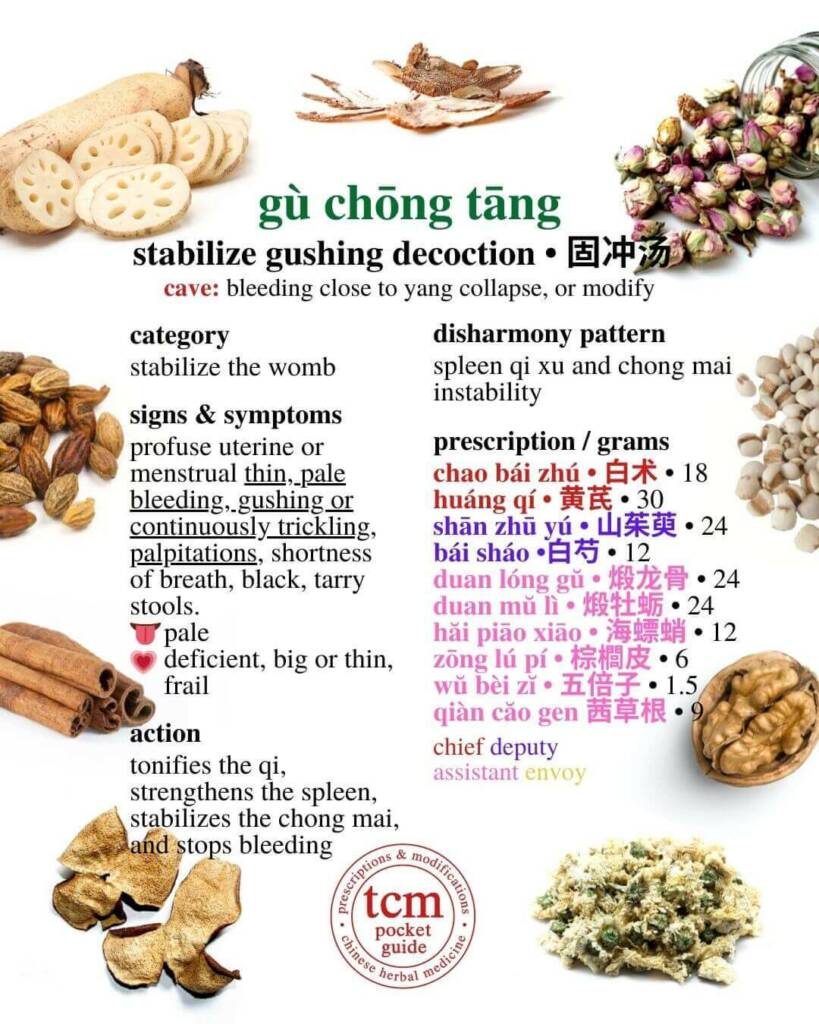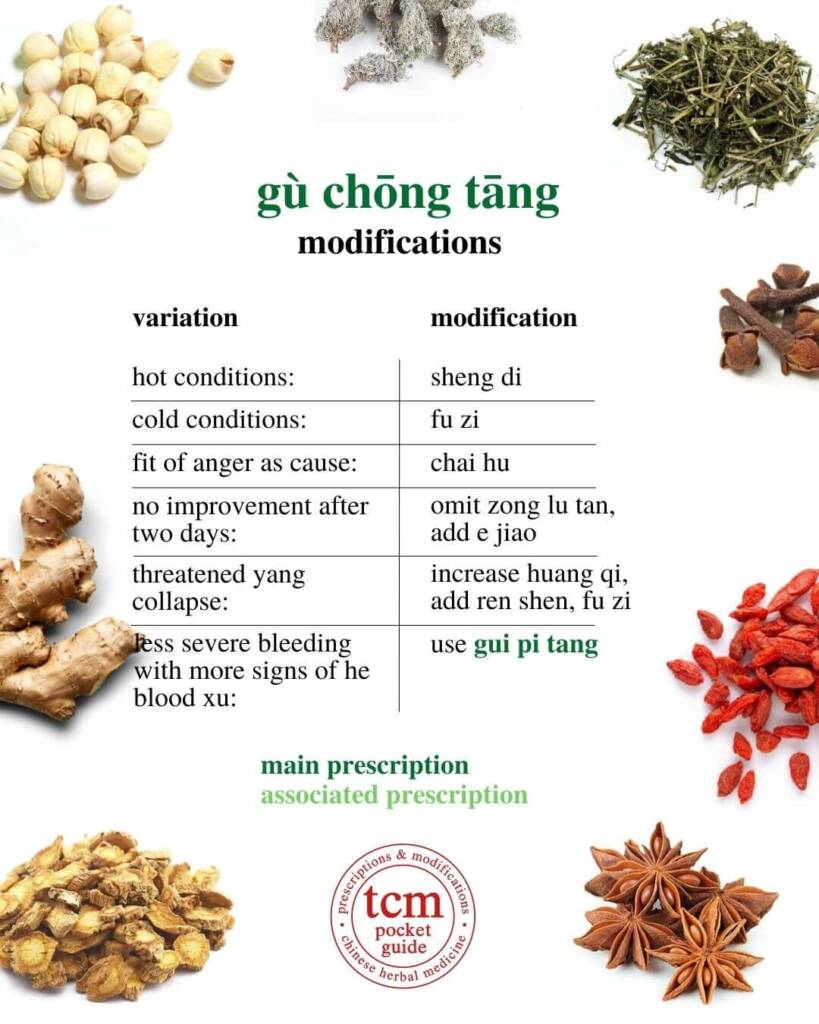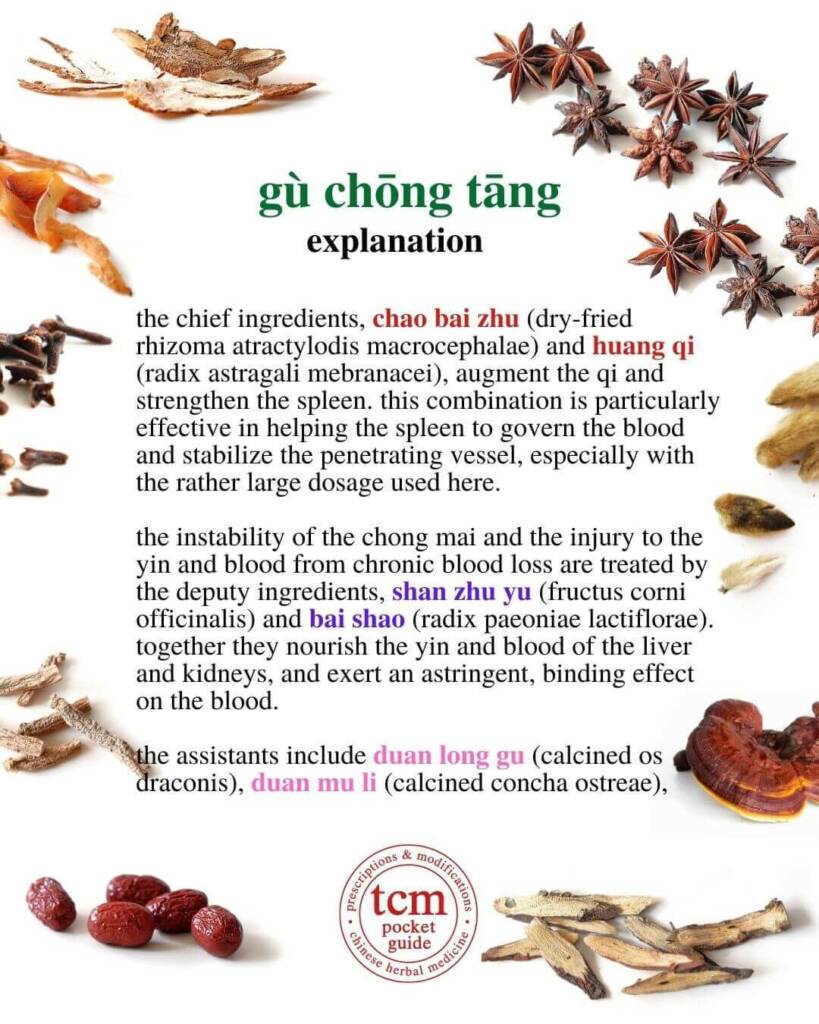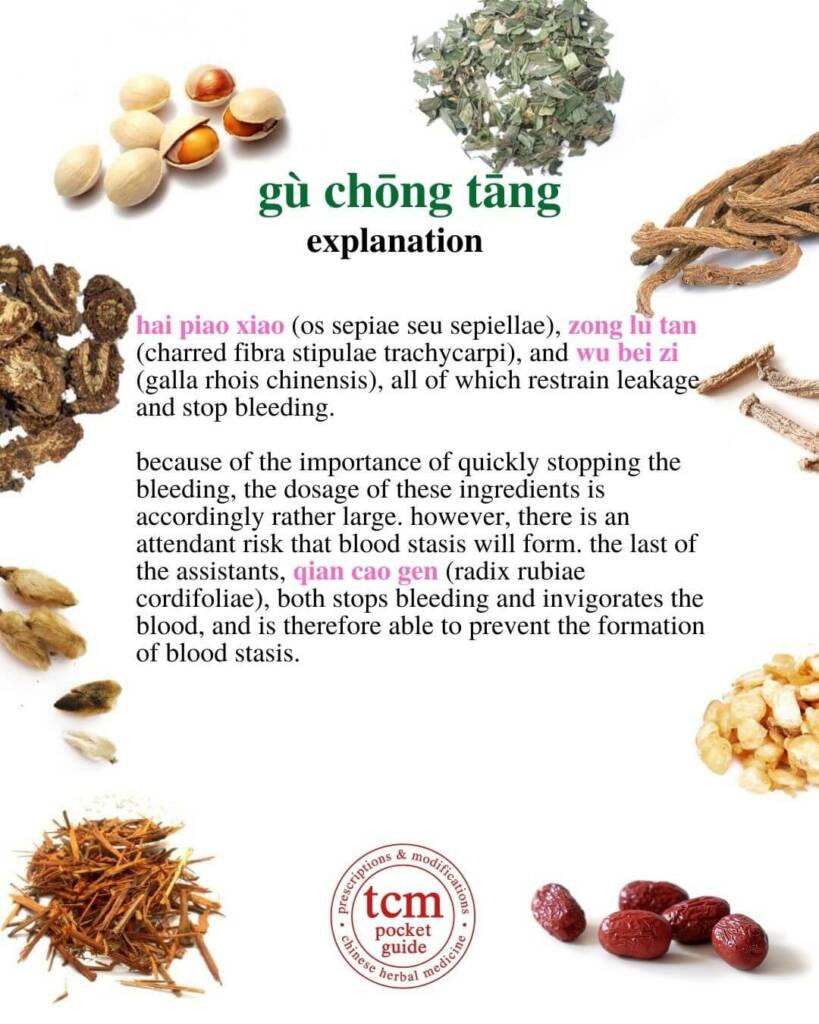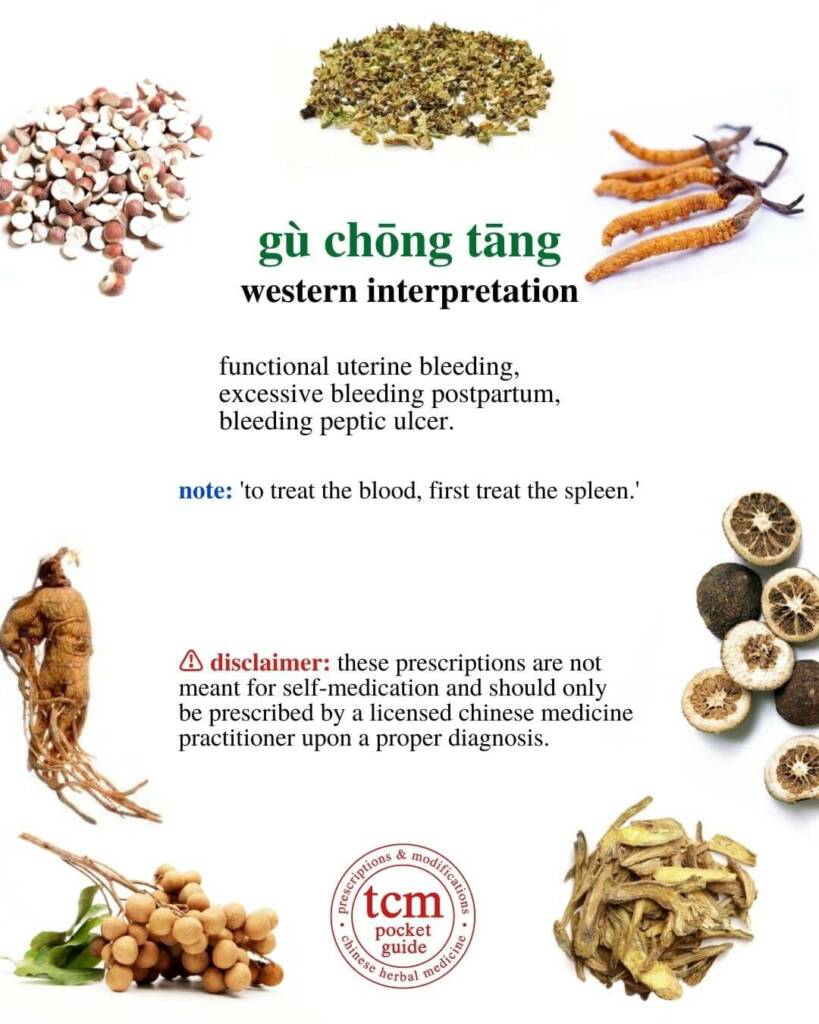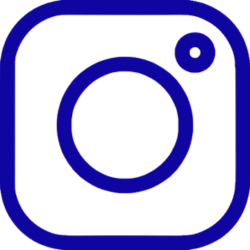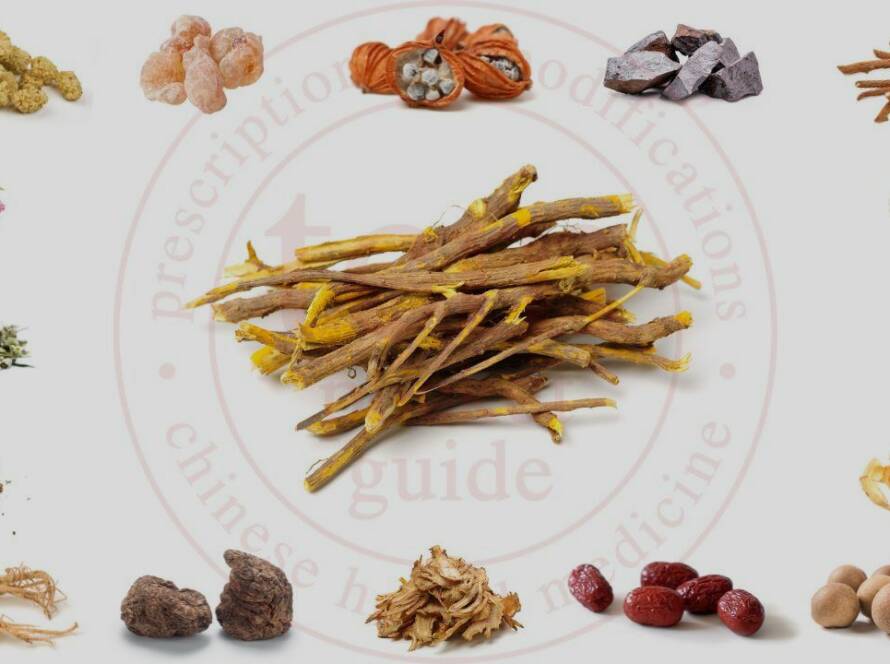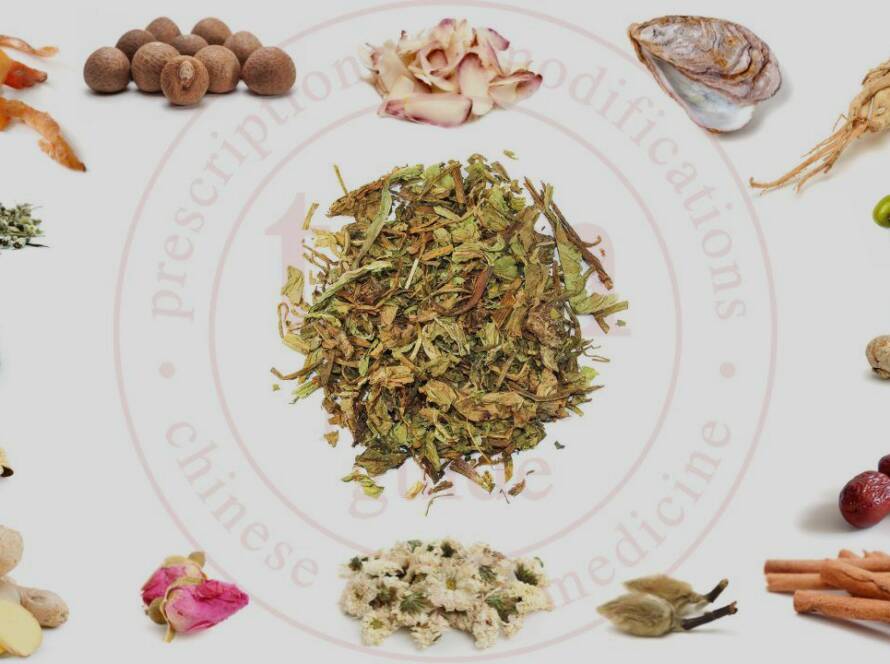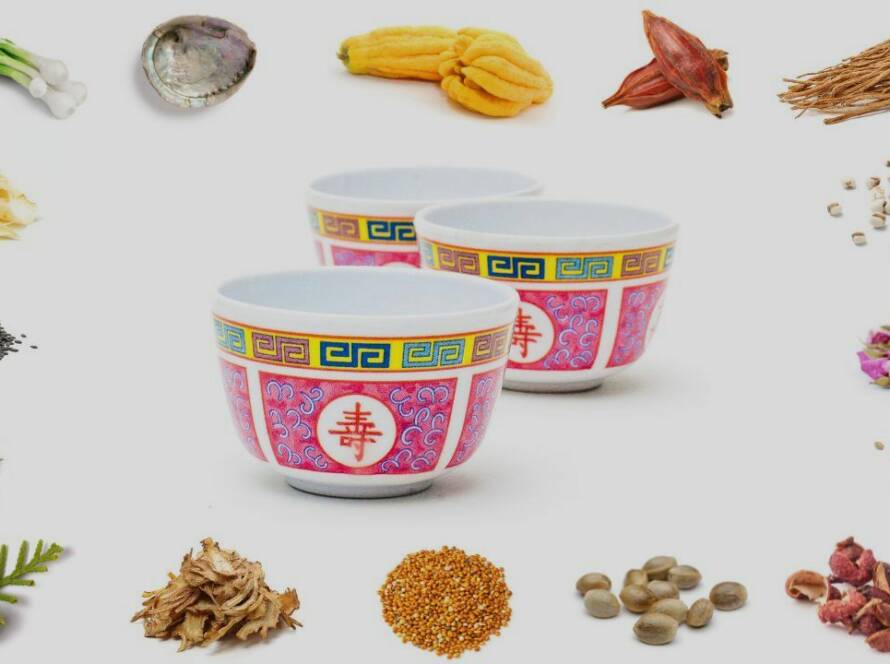gù chōng tāng is used for patterns with
spleen qi deficiency, and instability of chong and ren mai.
symptoms indicating the use of gù chōng tāng
continuous uterine bleeding (either spotting or gushing), pale, thin blood, leukorrhea, palpitations, shortness of breath, anemia, tiredness.
western interpretation of gù chōng tāng
functional uterine bleeding, excessive bleeding postpartum, bleeding peptic ulcer.
explanation of the mechanism
uterine bleeding or profuse menstrual bleeding can arise from many causes including heat, blood stasis, liver and kidney deficiency, or spleen deficiency.
long-term uterine bleeding, irrespective of the cause, has a tendency to injure the middle or spleen qi. when the spleen qi is deficient, it can no longer govern the blood. at the same time the penetrating vessel, or ‘sea’ of blood, becomes unstable. it is the stability of this vessel that ensures the regularity of the menstrual cycle. when this type of deficiency or instability is the cause of the problem, the blood will be thin and pale, and will either gush out or continuously trickle out.
loss of blood leads to qi and blood deficiency, which is reflected in the palpitations, shortness of breath, pale tongue, and deficient and big or thin and frail pulse. the penetrating vessel is associated with the yang ming (brightness) meridian. thus, when the spleen and stomach are deficient (the latter connecting to the leg yang ming meridian), the penetrating vessel will also become deficient. this is the root of the disorder.
blood deficiency also affects the liver, which stores the blood. in addition, a problem of the penetrating vessel usually leads to a problem of the conception vessel, as these two vessels are closely linked. the kidneys, which are the root of the penetrating and conception vessels, are also affected.
(bensky & barolet)

created with love in switzerland 🇨🇭
feel free to share this content:


